We all want to make the most of our days. However, there’s only so much you can cram into the limited amount of hours you spend working. In this article, we’ll be going over some tips to boost your productivity when working. Leave room for relaxation by maximizing your efficiency to get more work done in a short amount of time!
Especially when working from home, as a freelancer, for example, you have to manage your own time. This is both a blessing and a curse.
People often try and go to extreme lengths to be more productive — mostly as a result of procrastination and short deadlines. While in the short-term, cramming as much work into your day as possible can be a quick fix, it’s not something you can keep up. Overworking yourself leads to burnout, bad quality work, and exhaustion.
Instead, maximize your productivity using the 5 tips below and improve your work without extending your work hours. Let’s take a look at how you can improve your performance and even the quality of your work.
Tips to Boost Your Productivity at Work
Here is a summary of the tips we selected to help you boost your productivity at work:
- Break down goals into smaller tasks
- Allocate time Wisely
- Prioritize: Focus on the most important tasks
- Stop multitasking
- Get rid of distractions
- Balance work and breaks
- Analyze and measure productivity
- Set deadlines
- Exercise
Let's discuss them in detail below:
1. Break down goals into smaller tasks
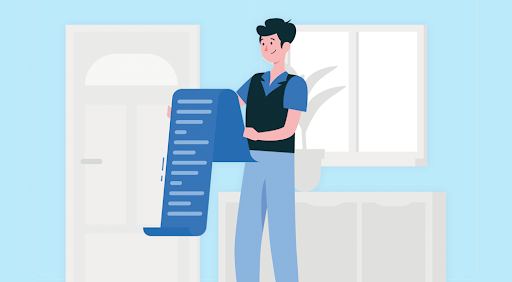
Vague and intimidating tasks can cause you to be anxious over having to work, thus putting it off even more. I find that breaking down my main tasks into smaller, more manageable subtasks helps with this issue.
For example, if you’re working on a presentation, you can break it down to some key points. First, research the subject matter and gather information. Then, write all the contents for the project. Search for images and insert them into your project. Lastly, add any finishing touches and review the finished work.
Smaller tasks immediately look less burdensome, and you sit down to get things done with a more motivated attitude. This goes a long way! You’ll notice that you finished the entire project in no time as you tick off the smaller, easier parts of the project.
2. Allocate Time Wisely
If you are more productive at certain times doing certain tasks, allocate those tasks at that time. For example, some people are better at writing at night while others are more focused on the morning.
Set meetings, phone calls, and emails when you are not productive doing other tasks.
Use your best time to do the hardest tasks.
3. Focus on the most important tasks
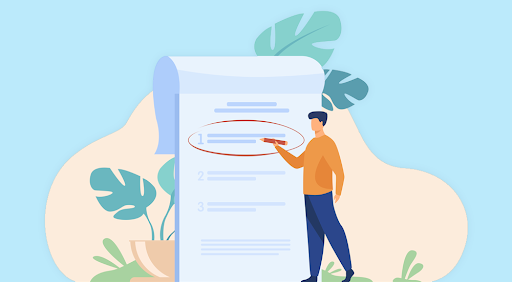
It’s one thing to recognize and sort your tasks into a to-do list, but you need to do a little bit more than that to stay on top of things. One trick I utilize on a daily basis is creating a priority list of all the tasks scheduled for the day.
Arranging your to-do list in order of importance allows you to make sure you never miss deadlines. If you don’t work with deadlines, organize your list from the hardest task to easiest to make the process gradually rewarding. Work will only get easier as you move down on your list and cross off each task needed for your projects.
Focus on the things that no matter what, you need to finish by the end of the day. After you’ve completed these tasks, the rest will be much easier and faster. Allocating your energy to the top of your priority will ensure that your best effort goes where it counts.
4. Stop multitasking
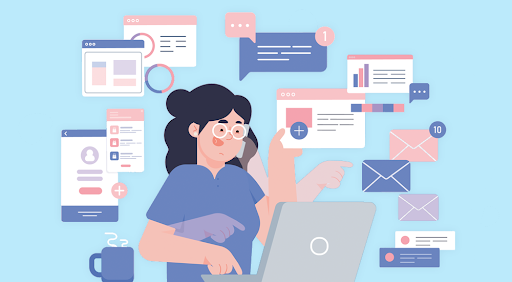
Multitasking might seem like a good idea, but in reality, it’s really not. Dividing your attention between multiple tasks will slow you down and leave room for error. I’ve found that utilizing the first two tips I mentioned above, I was able to create a flow in my work that didn’t require me to split my focus at all.
Keep your focus on the task you’re currently on as you work your way down on your sorted to-do list. Doing so, you won’t have to sacrifice nor quality or time, as you’ll efficiently finish a task and can move on to the next one sooner.
5. Get rid of distractions
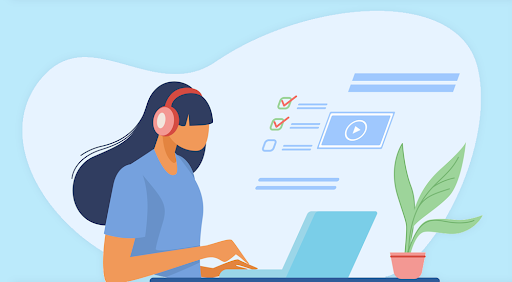
Even if you have an entire room for yourself, there’s still plenty of distractions that may come your way. I’d like to share a few tips from our 7 Steps to Become More Productive While Working From Home article to help you eliminate these distractions so you can fully focus on your job:
- Wear noise-canceling earbuds. Listening to calming music helps many people to focus on. Combining this with noise-canceling earbuds is the best way to isolate yourself from distracting sounds.
- Use Do Not Disturb on your phone. Each smartphone comes with the option to silence notifications. Turning this mode allows you to focus on your work. Don’t allow yourself to be distracted by the sound of a new text message or social media interaction.
- Turn desktop notifications off. Similarly to the previous tip, silencing desktop notifications is a great way to increase your focus. Most messaging applications have an option to temporarily turn notifications off.
- Block distracting websites. Do you find yourself switching to social media and other sites often while working? Don’t give in to the temptation and utilize browser extensions to block these websites. I personally recommend using something like StayFocusd. The Forest app is also a great alternative if you want more motivation to stay off such websites.
6. The perfect formula: balance work and breaks
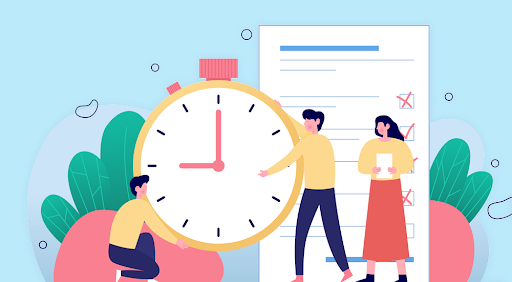
I found that taking regular breaks while working ensures that I always have the energy for a task and don’t get burnt out so easily. In the past, we’ve seen experiments such as DeskTime’s data analysis in 2014, which determined that breaks are crucial to balancing your workday.
CIPHR article, lists 5 benefits of taking breaks:
- Breaks help you to process and retain information
- You’ll get a better sense of the big picture
- You’ll be more creative
- Breaks can help you cultivate healthier habits
- Taking regular breaks helps you be more productive
The perfect break after a 52-minute work session is said to be 17 minutes.“Specifically, the most productive people work for 52 minutes at a time, then break for 17 minutes before getting back to it (similar to the Pomodoro Method.”
— Julia Gifford, from The Muse
Simply taking time to recover from work isn’t always enough, though. Make sure you don’t take any second of your break for granted. Don’t simply laze around! Get up, get a healthy snack, do some light exercise, and satisfy your craving for social interaction. This way, once you get back, you can fully focus on work again until your next break comes around.
7. Analyze and Measure for Productivity
Measuring time spent on various tasks and evaluating them is very important. You can start by writing down tasks and time spent on those tasks and use tools to measure productivity. You can also evaluate them and compare with average time.
Write down your daily time spent on each task and review it. Think about it. For example, I started working on one article and it took me 2 hours to write in one morning.
8. Set Deadlines
When you create your TO DO list, setting your own deadlines help getting tasks done on time.
Not only set deadlines, but you also need to try to beat your own time.
Always compete with yourself and try to beat your own time.
Productivity comes when you don't realize you are productive.
9. Exercise - Add Physical Activities to Your Routine
Adding small physical activities at work during breaks increases productivity.
Stretch a few times a day or light exercise helps improve physical and mental health.
Walk few minutes if possible. Some people walk during phone calls and meetings.
Here are 5 benefits of exercise:
- Exercise helps you handle stress better
- Gives you more brain cells means more brain power
- Gives you more energy
- Makes you happier
- Gives you a memory boost

